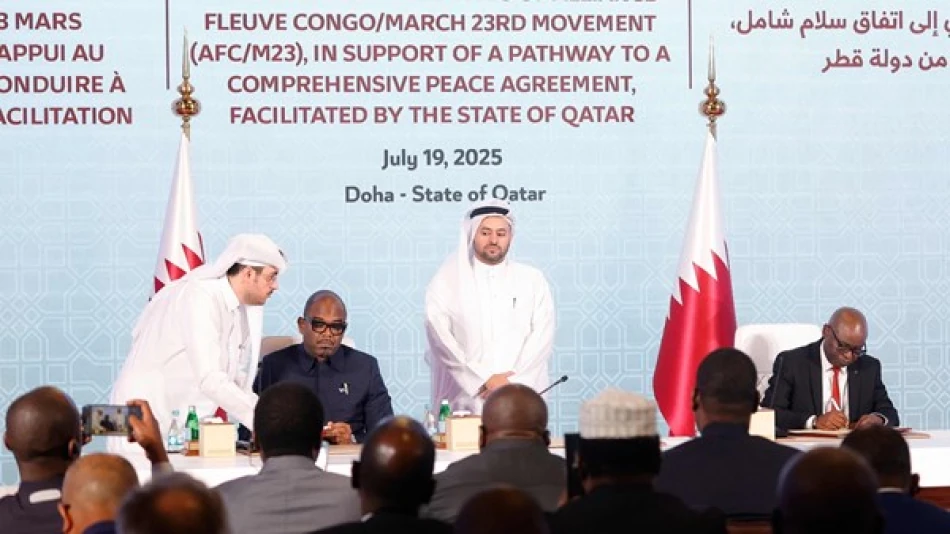
Democratic Republic of Congo and M23 Rebels Reach Draft Peace Accord
Congo Peace Deal Inches Forward as Qatar Mediates Critical M23 Negotiations
A draft peace agreement has been delivered to both the Democratic Republic of Congo government and the M23 rebel movement, marking a pivotal moment in Qatar's ambitious mediation efforts to resolve one of Africa's most persistent conflicts. With a self-imposed August 18 deadline looming, the coming days will test whether Doha's diplomatic influence can succeed where previous international interventions have failed.
Qatar's Strategic Diplomatic Push
The Gulf state's involvement in Congo's peace process represents a significant expansion of Qatar's diplomatic footprint beyond its traditional Middle Eastern sphere. A senior Qatari official confirmed that both conflict parties have received the draft agreement ahead of crucial talks set to resume in Doha within days.
This mediation effort builds on a principles declaration signed by both sides during July 19 negotiations in the Qatari capital, which established the August 18 deadline for a comprehensive peace accord. The timeline reflects Qatar's preference for deadline-driven diplomacy, a approach it has employed successfully in other regional conflicts.
M23's Resurgence and Regional Implications
The M23 rebel group's renewed insurgency has destabilized eastern Congo since 2021, displacing hundreds of thousands and straining relations between Kinshasa and neighboring Rwanda, which Congo accuses of backing the militants. The group, primarily composed of ethnic Tutsi fighters, previously captured significant territory in 2012-2013 before being defeated and disbanded.
The current peace initiative comes as M23 controls substantial areas around North Kivu province, including strategic positions near the regional hub of Goma. This territorial control gives the group significant leverage in negotiations, unlike previous talks where they operated from positions of military weakness.
Testing Qatar's Mediation Model
Qatar's involvement in Congo represents a test case for the small nation's growing ambitions as a global mediator. Having successfully facilitated talks between the Taliban and the United States, and maintaining dialogue channels across multiple Middle Eastern conflicts, Doha now seeks to prove its diplomatic model can work in sub-Saharan Africa.
The Qatari approach typically combines discrete, high-level engagement with deadline pressure and financial incentives for compliance. However, Congo's conflict presents unique challenges, including the involvement of multiple armed groups, competition over mineral resources, and complex ethnic dynamics that have fueled decades of instability.
Economic Stakes and International Interest
Beyond humanitarian concerns, the Congo conflict affects global supply chains for critical minerals including cobalt, copper, and coltan—essential components for electronics and electric vehicle batteries. Continued instability in North Kivu threatens mining operations and could impact global technology markets already strained by supply chain disruptions.
The peace talks also carry implications for regional stability, as the conflict has strained relations between Congo and Rwanda while drawing in other East African nations through various peacekeeping and mediation efforts. Success in Doha could enhance Qatar's credibility as an alternative to traditional Western-led peace processes, while failure might reinforce skepticism about external mediation in African conflicts.
With the August 18 deadline approaching, the next round of Doha talks will reveal whether Qatar's diplomatic gamble can deliver tangible results or join the long list of failed peace initiatives in one of the world's most conflict-prone regions.
Most Viewed News

 Layla Al Mansoori
Layla Al Mansoori






